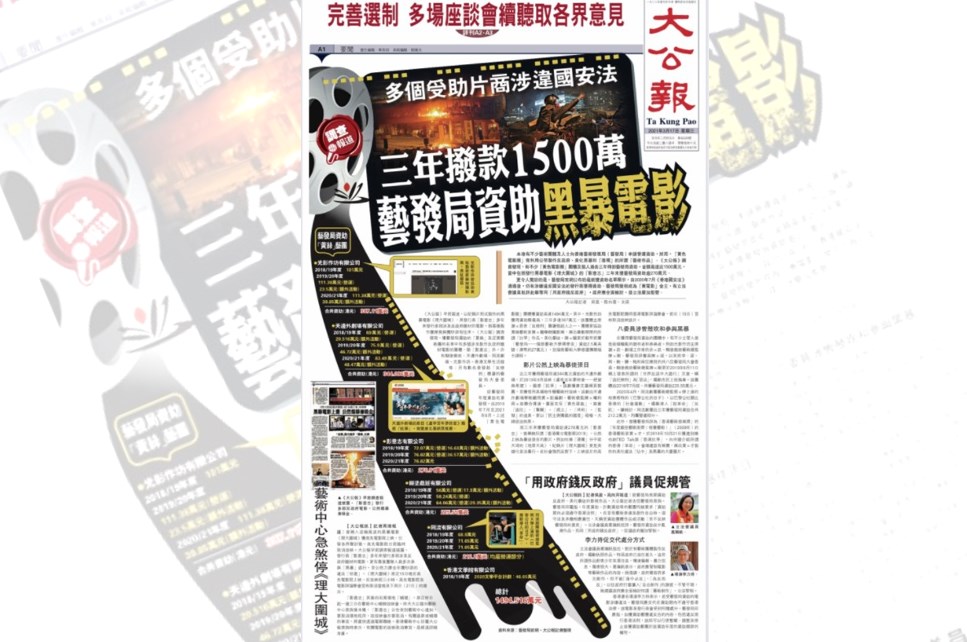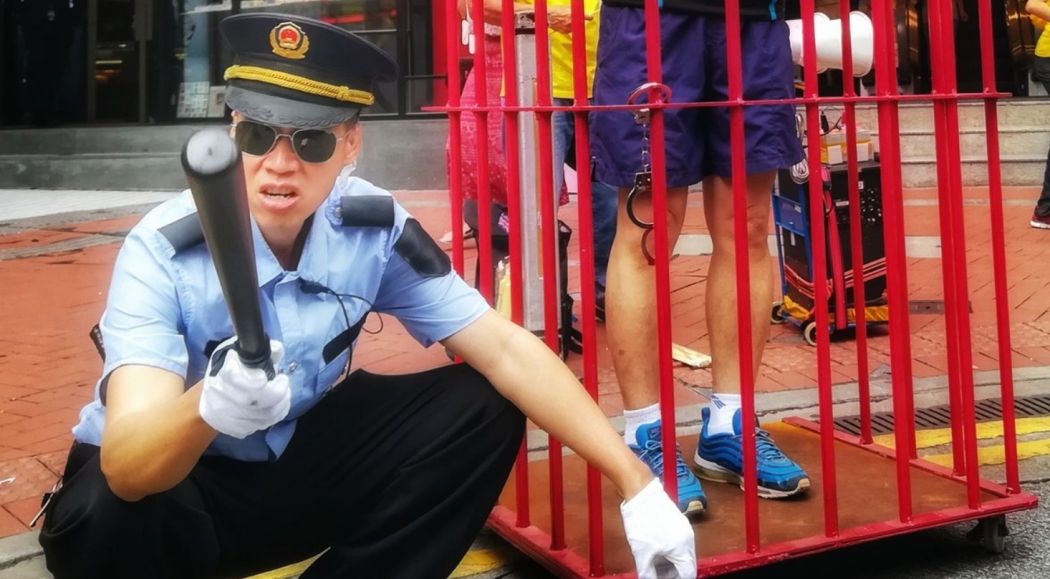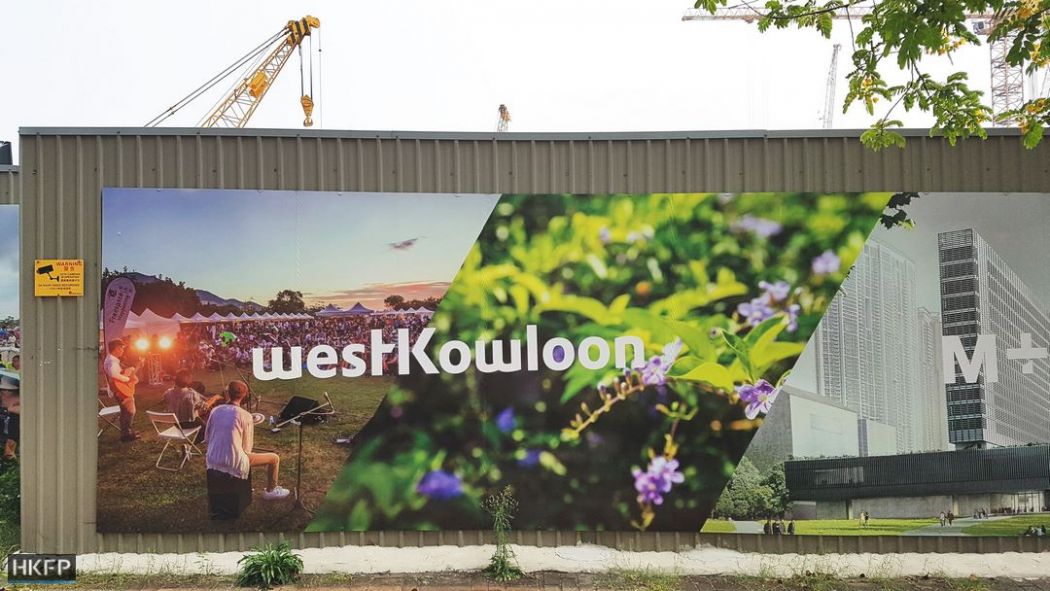A Hong Kong artist has warned that the national security law will soon be used to “suffocate” the city’s arts sector, following an editorial in a pro-Beijing paper slamming the government-run Hong Kong Arts Development Council (HKADC) for “funding black violence films.”
The state-controlled Ta Kung Pao accused the council on Wednesday of distributing around HK$15 million in funding over the last three years to cultural organisations it claims may have violated the security law.

In its front-page editorial, the paper listed six “yellow-ribbon” arts and theatre organisations it accused of violating the security law, including Ying E Chi, Theatre Horizon and Lumenvisum art gallery. The colour yellow is commonly associated with the city’s pro-democracy movement.
The article also quoted pro-Beijing lawmaker Elizabeth Quat as accusing the HKADC of “using government money to oppose the government.”
Local activist artist Kacey Wong said the article signals an impending crackdown by authorities to bring the city’s artists to heel: “The purge seems to have finally arrived in the artistic and cultural sector,” he told HKFP on Wednesday. “The article’s intention is to try and cut off the source of artists’ income and their platform; their angle of entry is to pressure the council.”

Wong said the blow comes to an arts sector already struggling during the Covid-19 pandemic: “It’s going to be devastating for artists and the Council… We artists at the forefront are relying on these schemes to survive.”
He added the move comes amid “drastically falling” freedom of speech and artistic freedoms in the city, saying it will “suffocate and stifle the development of Hong Kong’s art culture.”
HKADC ‘respects’ free speech
In response, the HKADC said it reserves the right to alter or suspend grants to organisations who commit acts deemed to be in violation of the city’s laws.
“If the grantee violates the terms and conditions of the agreement in any way, like advocating independence of Hong Kong and overthrowing the Government, as deemed offending the current Laws of Hong Kong, HKADC may exercise its rights to postpone, adjust or suspend grant disbursement for the grant year,” a statement on Wednesday read.

“HKADC respects the freedom of artistic impression,” the statement continued. “However, while a grantee enjoys the freedom of artistic expression and creation, he/she must also abide by the Laws of Hong Kong and assume responsibilities for creation and expression by the individual concerned and his/her organisation.”
The statement added that the views and opinions expressed in their grantees’ projects do not represent the council’s stance.
The article comes two days after the Hong Kong Film Critics Society cancelled screenings of a documentary about the police siege of the Hong Kong Polytechnic University during the 2019 anti-government protests with only a few hours’ notice. The move came following claims from the pro-Beijing press that the film may violate the security law.
‘Full alert’
Hours after the editorial was published, Chief Executive Carrie Lam vowed to be on “full alert” against artwork displays deemed to be endangering the city’s national security in government-funded spaces.
“With the national security law in place, we have to safeguard national security,” she said during a Legislative Council question and answer session. “We have to respect the freedom of artistic expression but I’m sure staff [at art and cultural centres] are able to tell… whether pieces are meant to incite hatred or to destroy relations between two places and undermine national security.”

“We will be on full alert in watching such matters,” she added.
Lam’s comments were made in response to pro-Beijing lawmaker Eunice Yung’s questions over whether the government will allow artwork deemed to be endangering the city’s national security to be displayed in the city’s arts and cultural spaces – including the new M+ museum of contemporary visual culture set to open later this year.
“We have so much time and effort building the West Kowloon Cultural District. How come there will be displays of art pieces that are suspected to have violated the national security law and also is an insult to the country?” Yung asked.
The new flagship museum is set to display works relating to the Tiananmen Square massacre in 1989, when Chinese authorities killed hundreds, perhaps thousands, of pro-democracy protesters on the mainland. Beijing has asserted that only 23 people were killed.
The increased scrutiny on the city’s arts and cultural sector follows moves by authorities to crackdown on all political dissent under the Beijing-imposed national security law passed last summer. Beijing passed an election law last Thursday aimed at limiting the city’s already restricted democracy while the majority of the city’s pro-democracy figures are currently detained.
Support HKFP | Policies & Ethics | Error/typo? | Contact Us | Newsletter | Transparency & Annual Report | Apps
Help safeguard press freedom & keep HKFP free for all readers by supporting our team
























